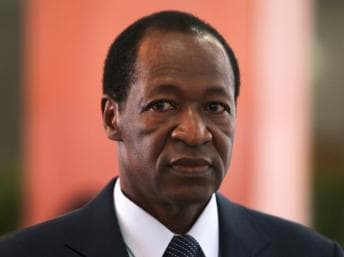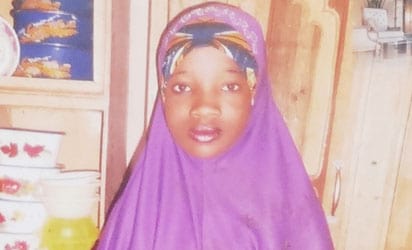On Thursday, livid protestors in Ouagadougou, Burkina Faso, set fire to parliament, city hall, and Congress for Democracy and Progress party headquarters, after legislators considered extending presidential term limits for the third time, according to the BBC.
SEE ALSO: Zambian President Michael Sata Dead at 77
Keep Up With Face2Face Africa On Facebook!
Burkina Faso President Blaise Compaore (pictured) came to power in 1987, after incumbent  President Thomas Sankara was reportedly killed by soldiers.
President Thomas Sankara was reportedly killed by soldiers.
In 1991, President Compaore was officially elected president in 1991…and then again in 1998.
Burkina Faso’s Constitution, which was amended in 2000, dictates that one can only be president for two terms, with each term lasting five years.
However, President Campaore would “win” two more terms.
So on Thursday, as parliament was set to vote on extending the presidential term so that President Campaore could run in next year’s election, the people came together to set fire to the aforementioned establishments in a stiff rejection of government.
State television has gone off air after protesters stormed the building housing it and ransacked it, Reuters quotes a witness as saying.
Smoke could be seen billowing from parliament.
Police had earlier fired tear gas to prevent protesters from moving in on the parliamentary building.But about 1,500 people managed to breach the security cordon and were ransacking parliament, AFP reports.
Protesters were setting fire to documents and stealing computer equipment and cars outside the building were also set on fire, it reports.

20 photos
“October 30 is Burkina Faso’s Black Spring, like the Arab Spring,” opposition activist Emile Pargui Pare told AFP news agency.
President Campaore and his administration have currently suspended voting.
Demands of People Ignored
In 2009, workers from both the public and private sector took to the streets to protest the high cost of living and demand salary increases.
Rising food prices in recent months have brought thousands of demonstrators to the streets in the country’s major towns and cities, resulting in hundreds of arrests. More than 46 percent of the 14 million people in Burkina Faso live below the poverty line.
“We need an equalisation between the cost of living and purchasing power,” Laurent Ouédraogo, the secretary general of the Confédération Nationale des Travailleurs du Burkina (CNTB) said.
The strike lasted for two days, and at the time, when pressed about how the government would respond to its citizens’ demands, one of President Compaore’s prime ministers quipped, “The people can march and march but nothing will change.”
Five years later — as the people have seemingly continued to be ignored — it appears that change has indeed come.
SEE ALSO: Chaos Is Order: The Importance of Informal Politics





























